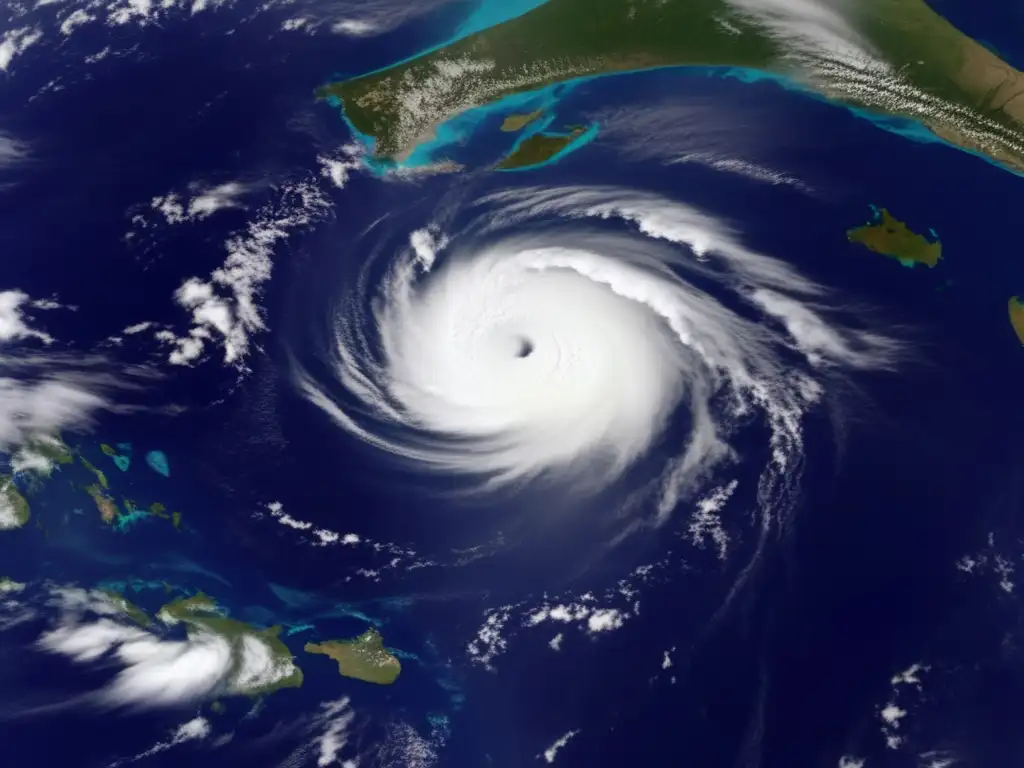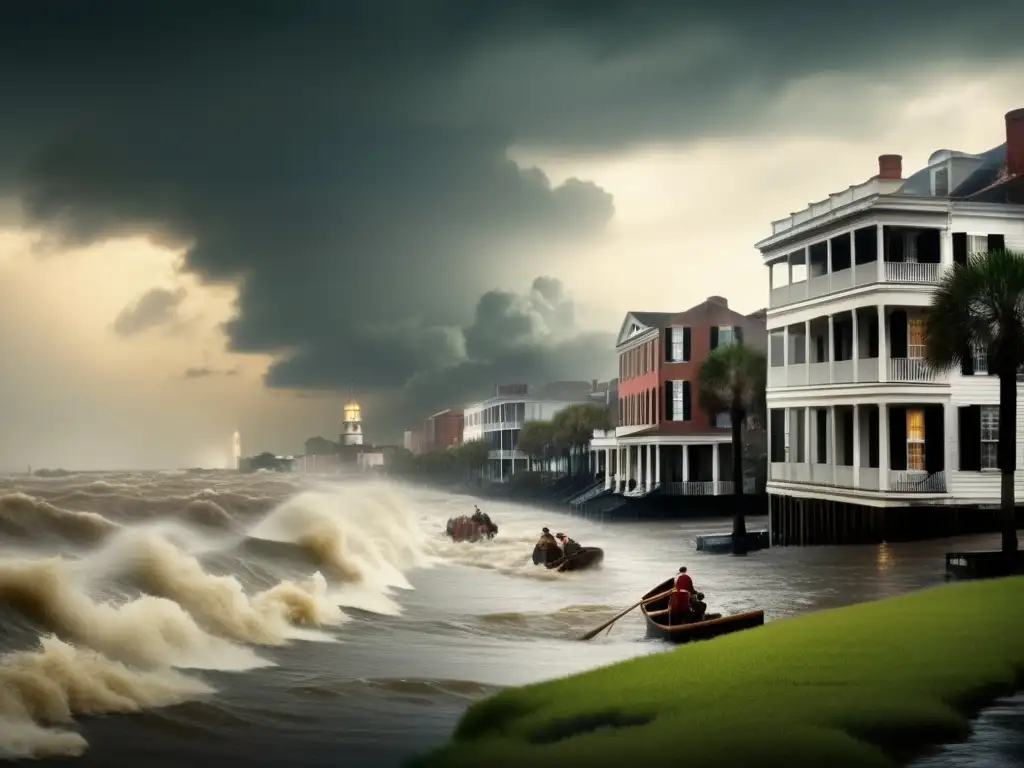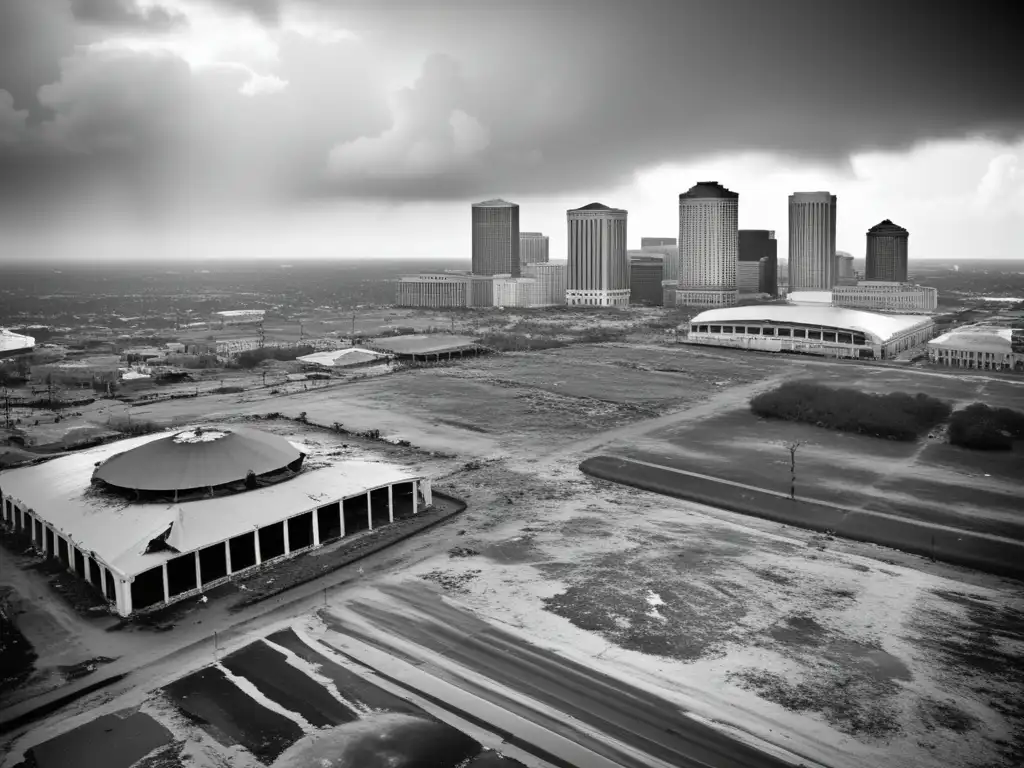Historic Hurricanes: The Great Hurricane Of 1780

Historic Hurricanes: The Great Hurricane of 1780
Introduction
When it comes to hurricanes, history has a lot to teach us. It is important to understand the past to be able to make informed decisions about the future. Hurricanes have been occurring for centuries, and we can learn from them to better prepare ourselves for the future.
The Great Hurricane of 1780 was one of the deadliest and most devastating hurricanes in history. It is important to study this hurricane, as it provides valuable insights into how hurricanes can impact communities and the land they live on. By understanding the destruction caused by this hurricane, we can work towards creating more resilient communities that can withstand the impacts of future hurricanes.
The Great Hurricane of 1780

Background
The Great Hurricane of 1780 occurred in the Caribbean from October 10th to 16th, during the American Revolutionary War. The hurricane struck several Caribbean islands, including Barbados, Martinique, and St. Eustatius, before dissipating over the Gulf of Mexico.
The hurricane is estimated to have had a Category 5 status, with sustained winds of 200 mph or more. The exact death toll is unknown, but estimates range from 20,000 to 27,500 people, making it one of the deadliest hurricanes in recorded history.
Impacts
The impacts of the Great Hurricane of 1780 were catastrophic. The storm surge alone was estimated to be around 20 feet, causing widespread flooding and destruction along the coasts. Entire towns were destroyed, and many ships were lost at sea. The hurricane also caused massive landslides and mudslides, which added to the destruction.
Many people died in the hurricane, either from drowning, being crushed by debris, or from injuries sustained during the storm. The death toll was especially high among those living in poverty and enslaved people, who were often forced to live in poorly constructed homes that were unable to withstand the hurricane's powerful winds.
Lessons Learned
The Great Hurricane of 1780 taught us several important lessons about hurricanes. One of the most important lessons is the need for proper preparation. Communities that had prepared for the hurricane and had taken measures to protect their homes and businesses fared much better than those that did not. This highlights the importance of having a plan in place before a hurricane strikes.
The hurricane also showed us the importance of building resilient communities. The homes and structures that were able to withstand the hurricane's powerful winds were often made from sturdy materials such as stone and brick. They were also built on higher ground and away from flood-prone areas. By building homes and structures that are more resistant to hurricanes, we can ensure that they are less likely to be damaged or destroyed in the future.
Hurricane Preparedness

Create an Emergency Kit
Having an emergency kit ready can be a lifesaver during a hurricane. The kit should include items like non-perishable food, water, a first aid kit, flashlights, batteries, and important documents such as insurance policies and identification.
Protect Your Home
If you live in a hurricane-prone area, it is important to take steps to protect your home. This can include installing impact-resistant windows and doors, securing loose objects outside, and reinforcing the roof.
Evacuation Planning
In some cases, the best course of action during a hurricane is to evacuate. It is important to have a plan in place ahead of time so you know where to go and how to get there. You should also have a plan for your pets and any other family members who may need assistance.
Frequently Asked Questions

-
What is a hurricane?
A hurricane is a tropical cyclone that forms over warm ocean waters. The storm is characterized by strong winds, heavy rain, and storm surges.
-
What causes hurricanes?
Hurricanes are caused by a combination of warm ocean waters, moisture, and converging winds. The heat and moisture in the air fuel the hurricane, while the wind patterns create the circular motion of the storm.
-
How can I stay safe during a hurricane?
To stay safe during a hurricane, it is important to follow evacuation orders if they are given. You should also stay indoors and away from windows during the storm, and be sure to have an emergency kit ready in case of power outages or other emergencies.
-
What is storm surge?
Storm surge is a rise in sea level that occurs during a hurricane or other severe storm. It can cause flooding and can be very dangerous, especially in low-lying areas.
-
Can hurricanes be predicted?
Yes, hurricanes can be predicted to some degree. Meteorologists use a variety of tools, including satellite imagery and computer models, to track and predict the path of hurricanes.
Conclusion
The Great Hurricane of 1780 is a reminder of the destruction that hurricanes can cause. However, by learning from history and taking steps to prepare ourselves for the future, we can create more resilient communities that are better able to withstand the impacts of hurricanes. It is important to take hurricane preparedness seriously and to be ready for whatever comes our way.
Whether you live in a hurricane-prone area or not, the lessons of the Great Hurricane of 1780 are still relevant today. By understanding the power of hurricanes and the impact they can have on our lives, we can work towards creating a safer and more secure future for ourselves and our communities.
Additional Resources

 Lessons From Hurricane Katrina: What We Learned
Lessons From Hurricane Katrina: What We Learned Post-Storm Flooding: The Hidden Danger Of Hurricanes
Post-Storm Flooding: The Hidden Danger Of Hurricanes Why Are Hurricanes Less Common In The South Atlantic?
Why Are Hurricanes Less Common In The South Atlantic?If you want to discover more articles similar to Historic Hurricanes: The Great Hurricane Of 1780, you can visit the Basic knowledge about hurricanes: category.
Leave a Reply

Articulos relacionados: